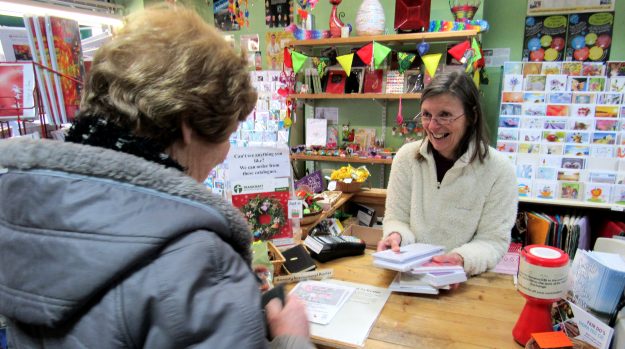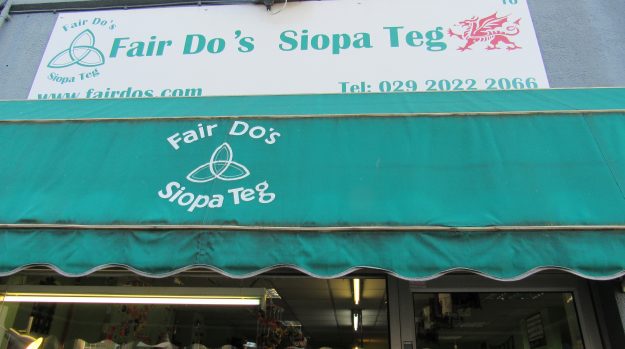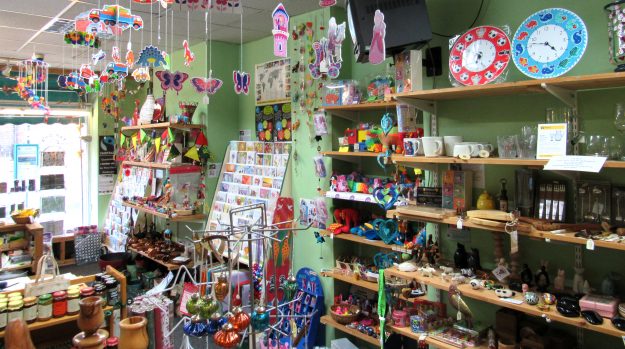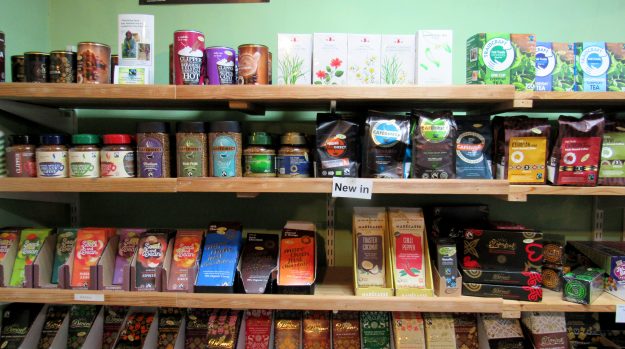Wales became the world’s first fair trade nation in 2008, To better understand this I sat down with Jan Tucker who opened FairDo’s which in 1988 was Cardiff’s first all fair trade shop.
In September of this year representatives from Sweden, Canada, England, Scotland, Wales and Poland gathered in Glasgow to discuss fair trade and how their country can achieve fair trade status. So far only two of the countries attending the meeting have met the criteria needed to be called a fair trade nation, Wales in 2008 and Scotland in 2013. The interest expressed by this wide range of countries is a strong indicator of the growing opinion of fair trade and the benefits it can have. To understand how a country can achieve the strict criteria needed to be a fair trade nation it would be beneficial to look at how Wales or Scotland achieved this in the past.
.embed-container { position: relative; padding-bottom: 56.25%; height: 0; overflow: hidden; max-width: 100%; } .embed-container iframe, .embed-container object, .embed-container embed { position: absolute; top: 0; left: 0; width: 100%; height: 100%; }
Following this idea then, I find myself heading off to talk to Jan Tucker the owner of Fairdo’s, which in 1998 was the first shop in Wales to only stock fair trade, since then she has been actively involved in making Cardiff a fair trade capital and Wales a fair trade nation.
Jan first became aware of fair trade through her church in the late 70’s. The more she learnt about fair trade the more she understood what a great idea it was. She eventually began working for Traidcraft, a national fair trade organisation, as the regional stockist for Cardiff. Jan laughs as she recalls how the shop for Traidcraft was in the basement of a Methodist church and so had a hard time attracting customers.

Unfortunately Traidcraft began to struggle and made several people redundant including Jan. At this point she felt she had two choices, to look for a new job that had nothing to do with fair trade or to carry on. She decided to carry on and after a year of setting up she moved out of the gloomy basement and into a shop at street level complete with its own window. Thus in 1988 Cardiff acquired it first every all fair trade shop.

For Wales to have achieved the title of fair trade nation it must have been able to prove that it had met a number of criteria. Two of which Fairdo’s was and still is very much involved with are that 75% of people must know what fair trade is and that there are over 400 schools that have achieved fair trade status. This need is reflected in Fairdo’s mission statement which is twofold first of all to sell fair trade products on behalf of marginalised artisan farmers in the developing world and secondly to raise awareness and to educate in South Wales and beyond.
Jan always knew raising awareness was going to a big part of her business but she never considered of directly interacting with schools and children. She recalls how this aspect just sort of evolved from teachers coming in to collect products to show the children. She explains how the teachers bring in a few children from the school, normally they are the schools selected fair trade ambassadors. The children are taught about fair trade in the office and then they are allowed to wonder the shop, looking at the products and asking questions. Jan said “fair trade generally is an amazing thing as most children have some pocket money and fair trade is something they can do and they know it makes a difference and I think that quit an incredible thing to teach children to think there’s a generation now growing up that’s aware and in Wales in particular.”

Following this natural progression, Jan has recently changed Fairdo’s to a community interest project. Jan explains that there were two reason for this “it certainly helped us in finding grant funding and we feel it just explains who we are because we always worked in the community.” This grant money has been used to fund research into what buying fair trade from Fairdo’s actually does for the people producing the products.
.embed-container { position: relative; padding-bottom: 56.25%; height: 0; overflow: hidden; max-width: 100%; } .embed-container iframe, .embed-container object, .embed-container embed { position: absolute; top: 0; left: 0; width: 100%; height: 100%; }
Jan how she did an exercise 10 years after Cardiff became a fair trade capital. She took a walk around Canton. She remembers how 10 years ago there was only one shop that sold fair trade and that was probably a Tesco that sold fair trade tea. However walking around now she discovered that there’s now 10 shops that sell fair trade, she recalls how she can now walk around and see “the sweet shop and it sells fair trade jelly beans and there’s the fruit and veg shop and it stocks fair trade bananas when they can get access to them.”

However the recession has hit Fairdo’s hard, as it did many other small businesses, combined with the recent Brexit and the future of Fairdo’s isn’t so certain. Jan warns that she doesn’t “know wherever our sales this Christmas will be as good as last year and if it will keep us going for another year.” Currently Fairdo’s combines a combination of paid staff and volunteers, however they’ve had to let a few of their staff go, often leaving them short on help for large events, resulting them in having to turn down a number of opportunities. There’s a number of opportunities for anyone that wants to volunteer including working in the shop once a week for a half day to being on call for large events. If you want to volunteer then just go down to the shop and Jan can help you fill out a form, for directions follow the embedded map.
